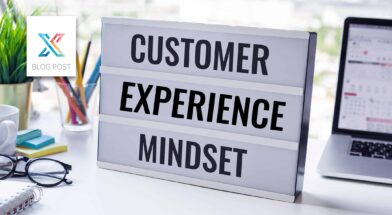You may have read my last blog, “11 Reasons CX programs are doomed to fail”, but if not, I highlighted the number of reasons why CX programs are failing across the professional services industry. I decided it may be a clever idea to follow up with this blog as a good place to start next…
Hiring a customer experience professional in professional services can be a critical decision for any firm, as it directly impacts customer satisfaction, retention, and ultimately, revenue. One of the reasons programs fail in the first place is the “check the box mentality.” This mentality will hinder your hiring process as well. If the person is there because it’s the “thing everyone else is doing” then you and your firm have this mentality and will ultimately fail with this hire. Here are several other mistakes a firm can make during this process:
1. Neglecting Industry Specific Experience
Hiring a CX professional who lacks experience in the specific industry of the firm can lead to misunderstandings of customer needs, industry nuances, and best practices. While this doesn’t always happen, and sometimes an outside perspective works, these misunderstandings can lead to adverse outcomes for the firm and ultimately begin driving down the adoption of customer-centric behavior. For example, customer journey mapping exercises may be difficult without understanding the industry specifics.
2. Focusing Solely on Technical Skills
While technical skills are essential in many ways, focusing solely on them can overlook important soft skills such as empathy, communication, and problem-solving abilities, which are crucial for effective customer interactions. Understanding how to use soft skills to make your customers’ lives easier, safer, and better is the primary driver to making the firm's CX program successful.
3. Ignoring Cultural Fit
Culture is becoming a key driver for employees and firms to be successful, in fact, more now than ever. Neglecting to assess whether the candidate aligns with the firm’s values, culture, and customer-centric approach can lead to conflicts and difficulties in integrating them into the team. Integration is not the only challenge that will arise, matching values with ideal customer acquisition can become difficult as well.
4. Overlooking Data Analysis Skills
Customer experience roles often involve analyzing copious amounts of customer data to derive insights. As an example, leveraging Client Savvy’s Customer feedback software, an ERP’s financial data, as well as operational data can often give you a clear picture as to who your ideal clients are, how to make them the most profitable, and work the most effectively with them to grow your share of their annual spending. Data analysis skills are needed for this type of effort. Overlooking candidates’ strong data analysis skills can hinder the firm’s ability to understand customer behavior and preferences effectively.
5. Not Prioritizing a Customer-Centric Mindset
Hiring a CX professional who does not prioritize customer satisfaction and retention over other metrics can result in strategies and initiatives that fail to resonate with customers. The ability for your candidate to put themselves in the customer's shoes and use empathy will likely create a downward trend in client outcomes for each initiative. Once the trend downward begins, the CX program inside of your firm may fail as well.
6. Underestimating Change Management Abilities
Implementing CX initiatives often requires significant organizational change. Hiring a professional who lacks change management skills can result in resistance from employees and ineffective implementation. CX Transformation in professional services without proper change management will lose followers from your staff as well as your clients.
7. Failure To Assess Communication Skills
Proactive communication is one of the top three drivers in customer buying behavior. Thus, effective communication skills are crucial for customer experience professionals to convey insights, gather feedback, and collaborate with various teams within the firm as well as clients outside of the firm. Failing to assess a candidate’s communication skills can lead to a major breakdown in your program and ineffectiveness.
8. Rushing The Hiring Process
I’m not sure why we do this, but so many firms do. SO many feel the need for seat fillers yet hiring the first available candidate without thoroughly assessing their qualifications, experience, and fit can lead to subpar hires and ultimately harm the firm’s customer experience efforts. Once you begin marketing the fact that you are a CX-led firm, yet you are not, outcomes will be the opposite of what you set out to accomplish.
9. Not Involving Stakeholders in the Hiring Process
CX initiatives often require cross-function collaboration. Not involving the right or relevant stakeholders, such as representatives from marketing, sales, and product teams, in the hiring process can lead to mismatches in expectations and collaboration difficulties. As mentioned before, you need leadership buy-in, make sure to include them across the distinct functions in your firm!
10. Ignoring Feedback from Customers and Employees
Neglecting to gather feedback from customers and employees about their experiences with the candidate during the hiring process can lead to overlooking red flags or missed opportunities. In addition, it can foster a lack of interest in giving feedback in future endeavors as well as a lack of followership from the start.
Avoiding these mistakes and conducting a comprehensive hiring process that evaluates both technical skills and soft skills while ensuring alignment with the firm’s culture and values can help secure a CX professional who will drive positive customer experiences and contribute to the firm’s overall success.





